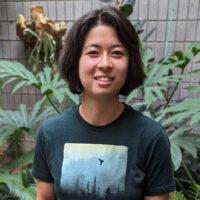
Understanding the role of PRD2 in regulating meiotic recombination in maize
Genetic variation is important for developing crops with higher yields, disease resistance, and other desirable traits. During plant meiosis, homologous recombination (HR) ensures this genetic variation by reshuffling genetic material between parental chromosomes. In Arabidopsis, the PRD2 gene initiates HR by regulating the formation of DNA double-strand breaks (DSBs). DSB ends are then resected to create overhangs that invade homologous DNA and form recombination intermediates, which are processed to form type I or type II crossovers (COs) by several proteins, including MLH3. Abnormal chromosome pairing during this process can result in detrimental phenotypes such as sterility and aneuploidy. Our study involved a mutant (dsyCS) with a mutation on the Arabidopsis PRD2 homolog in maize. Our goal was to analyze the number of COs in the dsyCS mutant versus wild-type to uncover the function of the PRD2 gene on meiotic recombination and CO formation in maize. We created chromosome spreads to establish a standard for visualizing meiocytes during the leptotene, zygotene, and pachytene stages of meiosis during which COs are visible. Using immunolocalization assays with an MLH3 antibody and microscopy observation, we counted MLH3 foci to compare CO numbers between mutant and wild-type meiocytes. We found that dsyCS has fewer CO sites than wild-type, which indicates chromosome pairing defects in this mutant. This information is crucial for understanding how to manipulate recombination and accelerate the development of plant breeding strategies.
Interning at the Pawlowski lab was my first time researching maize. This experience deepened my interest in plants and added several molecular biology techniques to my repertoire including genotyping, immunolocalization, and fluorescent microscopy. My favorite part of the research process was taking 3D, multichannel images of meiocytes with the Elyra super-resolution microscope and processing them with ImageJ. The lab cultivated a welcoming, down-to-earth environment where I could ask about anything related to science or life experiences. I am especially thankful to Wojtek for answering all of my questions and to Juli, my mentor, for encouraging me and guiding me through complex protocols. Receiving advice from members of the lab and hearing about their research paths also helped narrow down my interests within the broad field of plant science. Now, I feel more confident in my research abilities and better informed on how to pursue my professional goals after undergrad.
